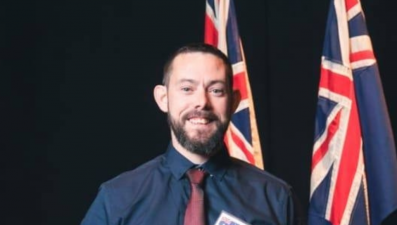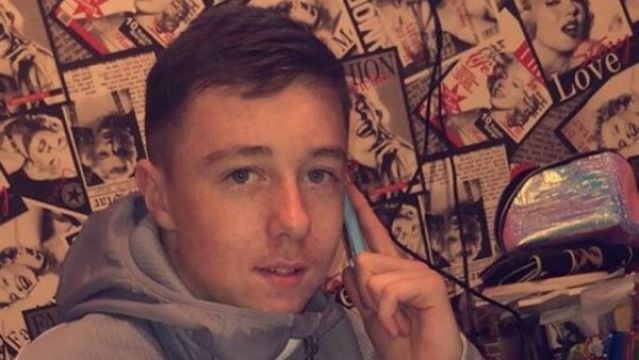The Special Criminal Court has jailed a Drogheda criminal for 10 years for assisting in the "disgraceful and inhuman" murder of teenager Keane Mulready-Woods, whose body was chopped up and discarded at various locations in Louth and north Dublin.
On Friday, Mr Justice Tony Hunt suspended part of Paul Crosby's sentence on condition that he be of good behaviour for two years following his release. The 27-year-old, who has more than 40 previous convictions, smiled as he agreed to enter the bond.
Crosby's co-accused, Gerard Cruise, was considered by the court to be at a lower level than Crosby and received a sentence of seven-and-a-half years with the final six months suspended for two years.
The maximum that each man could have faced was 15 years imprisonment.
Gerard Cruise (49), with addresses in Drogheda and Lower Sherrard St, Dublin 1, pleaded guilty last year to a charge that, with knowledge of the existence of a criminal organisation, he facilitated the murder of Keane Mulready-Woods at Rathmullan Park, Drogheda, Co Louth, between the dates of January 11th and 13th, 2020, contrary to Section 72 of the Criminal Justice Act 2006.
Paul Crosby (27), of Rathmullan Park, Drogheda, Co Louth, pleaded guilty to the same charge.
Mr Mulready-Woods (17) was last seen alive in Drogheda on January 12th, 2020. The following day, some of the teenager's body parts were found in a sports bag in the Moatview area of Coolock in Dublin.
Two days later, remains were found in a burning car in a laneway in the Drumcondra area. Mr Mulready-Woods' torso was discovered on March 11th, 2020, hidden in an overgrown ravine during a search of waste-ground at Rathmullan Park.
Crosby was previously acquitted of attempted murder in an unrelated case following a trial in February 2019. He had been accused of the attempted murder of Gerard Boyle at Knockcommon, Beauparc, Slane, on November 10th, 2016.
Mr Boyle was stabbed 28 times and forced into the boot of a car that was then pushed into a canal. He escaped from the car and swam to the canal bank where a passing taxi driver called the emergency services. Crosby denied any involvement and a Central Criminal Court jury took just 43 minutes to find him not guilty of the attempted murder.
His previous convictions include road traffic offences, possession of drugs, criminal damage, theft and fraud, and arson. While in prison he has been convicted of being in possession of a mobile phone. Cruise's most recent previous conviction was in 2010 for possession of drugs. Prior to that he was convicted of public order matters and a burglary in 1990.
Mr Justice Hunt, presiding at the three-judge court, expressed his sympathy and condolences to the victim's family.
"It is painful and unnatural to lose a child prematurely," he said, "but it is particularly so when it comes about as a result of the crime of murder. In this case the remains of the child were treated in a disgraceful and inhuman way that beggars belief."
The judge said the circumstances of Keane's death and dismemberment "compounds the pain and grief that will be a permanent feature of this family's landscape".
He said those factors would "feed into the gravity" of the offences committed by Crosby and Cruise.
'Matter of nationwide concern'
Mr Justice Hunt said the chief suspect for the murder was Robert Lawlor, a criminal of "significant notoriety and linked to several murders" who was heavily involved in a feud between rival criminal gangs in Drogheda. Such gangs, the judge said, are the "scourge of the localities concerned and are a matter of nationwide concern".
Lawlor was later shot dead in Belfast.
Mr Justice Hunt said both Crosby and Cruise "must have had some knowledge of the capacities of the person they were assisting". They may not have known precisely what was to happen to Mr Mulready-Woods but, the judge said, "they were certainly reckless in assisting someone of the ilk of Robbie Lawlor".
"His true nature was shown by the disgusting way in which the deceased's remains were treated in the aftermath of what was already an appalling crime."
The judge noted both Crosby and Cruise were involved in acquiring a Toyota Corolla van which was used to dispose of some of the deceased's remains. He also noted there was phone contact between both men and between Crosby and Lawlor at times relevant to the murder.
It was Crosby who called Mr Mulready-Woods's phone and organised to meet him at the Ballsgrove shop in Drogheda. Crosby then travelled with Cruise and the victim to a house in Rathmullan Park where the teenager was ultimately murdered.
Mr Justice Hunt said Crosby was "instrumental in procuring the attendance of Mr Mulready-Woods".
Following the murder, Crosby remained in contact with Lawlor, while Cruise was seen leaving shopping bags outside his home that were collected by a person of interest in the murder investigation. One shopping bag that contained Cruise's DNA was later found at the scene of the murder.
Cruise also purchased false number plates which were put on a Volvo car that was used to transport some of the deceased's remains to Dublin. Mr Justice Hunt noted that Cruise bought the plates "in an open sort of way", suggesting he did not know their precise purpose.
Both men, the judge said, lent assistance to Lawlor before, during and after the crime, and did so "presumably knowing this man had significant criminal capacity".
Feud
The judge found that the offences fell in the top third in terms of gravity for a charge of assisting a criminal organisation but there were differences between the two men in that Cruise made admissions to gardaí, has fewer previous convictions, was not on the garda radar before this offence, and is not involved in the Drogheda feud.

Crosby, the judge said, was "a notch or two higher than Cruise" in the criminal organisation and received directions from Lawlor and passed them on to others, including Cruise. Crosby's previous convictions are more serious, the judge said, adding that his "profile appears to be quite different".
He set the headline sentence for Crosby at 13 years and six months, but having considered his guilty plea he reduced that to 10 years and six months with the final six months suspended for two years.
The headline for Cruise was set at 10 years, reduced after considering mitigation to seven years and six months with the final six months suspended for two years.
Both sentences were backdated to take into account time already served.







